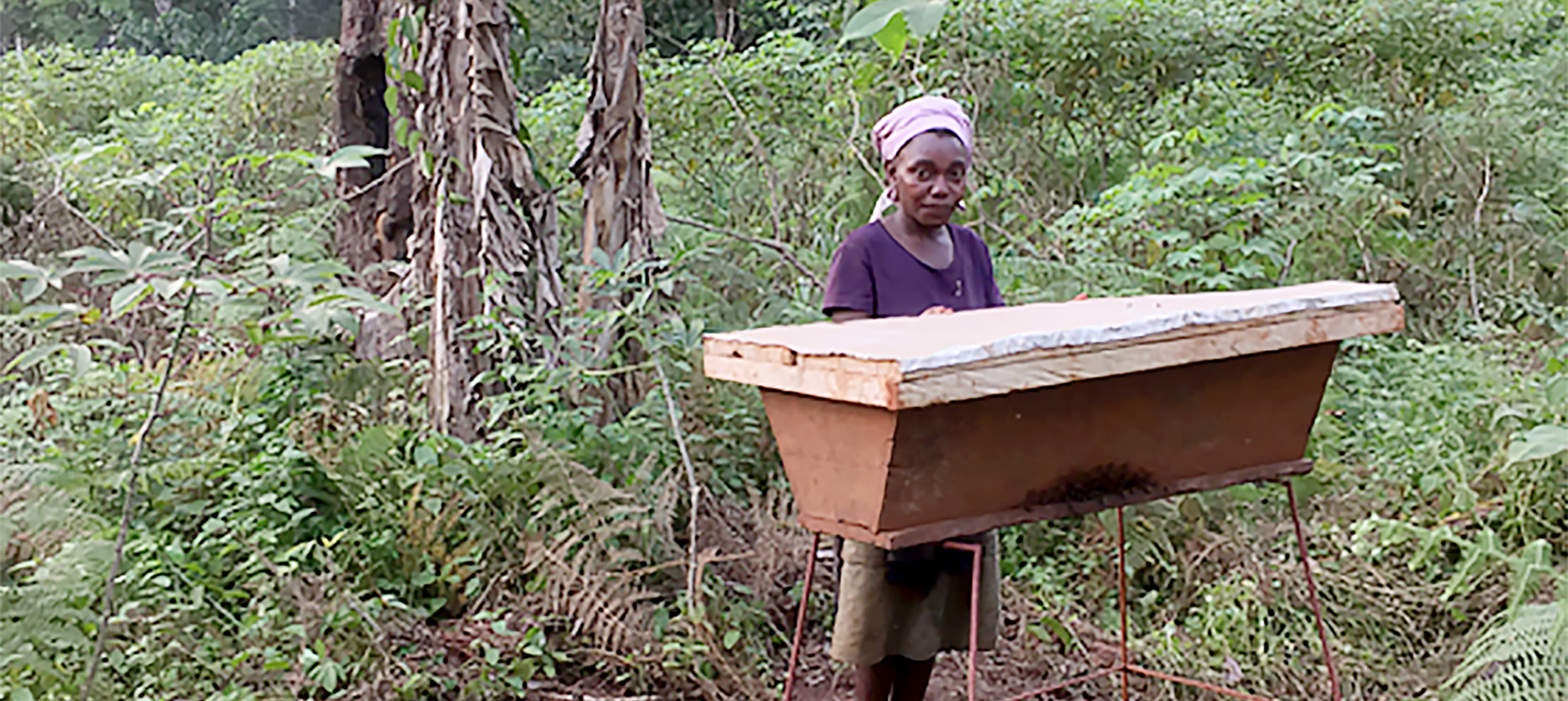Novel approach reaps results for Cameroon farmers
Story

Indigenous farmers in the east region of Cameroon are seeing the impact of a new initiative led by Cuso International. Having received training in modern beekeeping, the Baka people are now producing and selling natural honey at local markets, with gratifying results.
The Baka rely heavily on the natural resources found in the rainforests where they live. Previously, honey was harvested from hives in living trees. Now, farmers are using man-made hives and selling the naturally-produced honey, which they’ve branded Equi-Miel, at local markets.
This new way of harvesting honey is helping farmers generate much needed income and having a positive impact on the diversity of the forest and the conservation of trees.
“With modern beekeeping, the Baka no longer need to cut trees to harvest honey,” said Ginette Sindeu, one of Cuso International’s program support officer in Cameroon. “Now, they harvest it in the hives.”
Three Cuso International volunteers from Quebec—Emilia Boué of Montreal, Gatineau’s Hadja Diallo and Yoan Boisselier, of Boischatel—led the beekeeping initiative. They developed a business plan, created training lessons, assisted with operational planning and designed marketing materials with input from local farmers.
Before the program, many beekeepers couldn’t afford essential items like soap, salt or medical care for themselves or their families. Now, they can afford a better quality of life.
“The proceeds have greatly improved the economic wellbeing of the Baka people, especially the women,” said Ginette.
And buyers are loving the product. “We’ve had great reviews,” she said. “Customers appreciate the colour, taste and aroma of this honey.”
The training is offered through the Centre pour l’Environnement et le Développement, a Cuso International partner organization. For close to two decades the centre had operated a similar project, promoting skills education for the Baka people through business activities, but was forced to shutter the program in recent years following the death of the program manager.
“The partnership with Cuso International has given the project a new dynamic thanks to the support of the volunteers,” said Ginette.